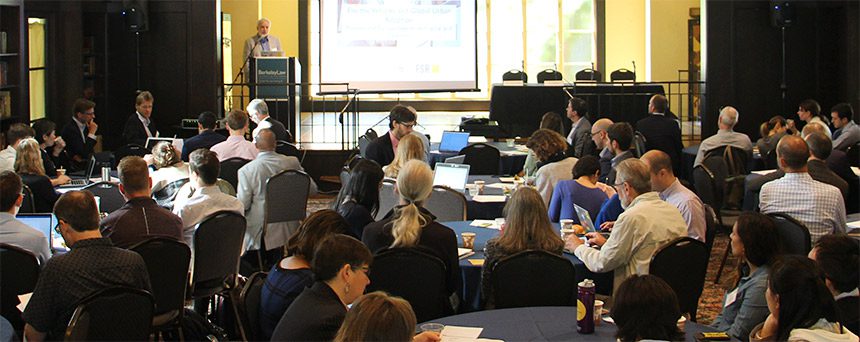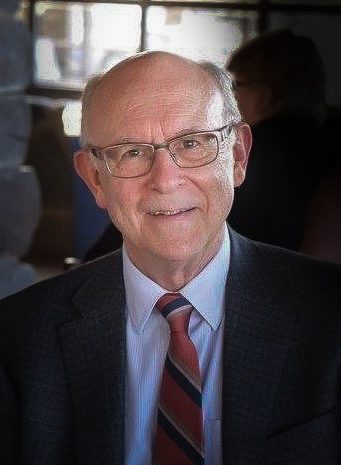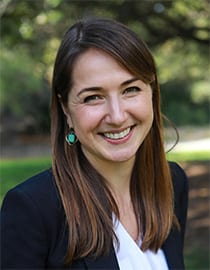
By Judith Katz
A major gift from Berkeley Law alumnus Stuart K. Gardiner ’73 to the school’s Center for Law, Energy & the Environment (CLEE) further expands its capacity to address the climate crisis.

CLEE recently received the first installment of Gardiner’s four-year, $100,000 Climate Solutions Wellspring Fund designed to leverage Berkeley Law’s expertise in the face of unprecedented climate change. It will enable the center’s researchers to identify, explore, and bring to implementation new, high-impact solutions.
Over the last few years, many senior decision makers have relied on CLEE as a resource for policy guidance. A key force behind Berkeley’s No. 1-ranked environmental law program, the center regularly advises and convenes high-level scholars, researchers, practitioners, and policymakers. Its grant-based funding model, however, limits the time available for research on novel approaches.
“Stu’s gift is incredibly meaningful – it helps us dig into priority issues, investigate potential solutions, and home in on the one that will have the greatest impact,” said CLEE Executive Director Jordan Diamond ’08.
“The world is fortunate that great minds have come up with myriad solutions to reduce greenhouse gas emissions, increase climate resilience, and so on,” she adds. “But we also have very little time to act before we pass critical thresholds for the future of the planet. That requires us to ask ourselves – which of these solutions is going to have the greatest impact, soonest, for most? It sounds obvious, but it’s actually extremely difficult to raise funds to support spending time investigating that. I’m incredibly grateful for Stu’s insightfulness and his faith in us.”
A Yale graduate, Gardiner served as a UC Berkeley administrator at the chancellor’s office and then as the law school’s assistant dean for administration and student affairs. He then worked at PG&E, focusing on wholesale electric power and transmission transactions and their regulation, and became increasingly aware of climate change risks and the urgent need to decarbonize the energy civilization relies on.
“Climate change threatens the whole biosphere, Earth’s ability to sustain life,” Gardiner says. “However, there is still an enormous number of possible solutions to consider and from which to select the best. There’s potential value in so many directions that it’s difficult to choose. But CLEE’s very capable people are well positioned to show the way for leaders to restore our climate to health.”
Timely and untraditional
The focused but largely unrestricted nature of this gift is remarkable, according to Berkeley Law Senior Assistant Dean for Development and Alumni Relations Mary Briese Matheron. “This is an unusual, very special gift,” she says. “Typically, law school centers are pressed for funds that allow for exploration of fresh and unconventional approaches.”
The tireless pursuit of innovative climate solutions can be found among CLEE’s research team. Ken Alex, director of the center’s Project Climate, was a senior climate advisor to California Gov. Jerry Brown and a central actor in climate policy in California and well beyond.

Alex describes himself as being “sort of obsessed” with identifying promising climate solutions and taking them to scale in an accelerated fashion. “One of the challenges with the foundation model is that it’s very project-driven,” he says. “You spend a lot of time and effort and thought for a project, and see where it goes, and the foundation wants to see a return, but sometimes it’s not the right moment or solution. One of the things that this gift gives us the freedom to do, is to really think through what’s the best approach overall.”
CLEE’s leadership includes other experienced environmental law leaders. Diamond is a member of the California Ocean Protection Council. Faculty Director and Professor Daniel Farber has authored over 20 books and is one of the nation’s most-cited law scholars. The center’s advisory board includes many distinguished leaders, including State Parks Director Armando Quintero, former Strategic Growth Council member Randall Winston, and Davina Pujari, co-chair of Hason Bridgett’s Environment and Natural Resources Group.
“We are very focused on figuring out how we can have the biggest impact,” says Ted Lamm, senior research fellow for the Climate Program. “This funding will help us take some time to look at really innovative ideas and issues where we can make the greatest difference.”
CLEE’s leadership hopes the enduring impacts of Gardiner’s gift will come not only from the work it allows the center to pursue, but also from the inspiration it gives to dedicated environmental and energy researchers.
“The people on CLEE’s team are very talented,” says Gardiner. “CLEE can make an impact because it brings a unique perspective to problems and has a close relationship to policy leaders. I’m optimistic this gift will help create a more sustainable future.”